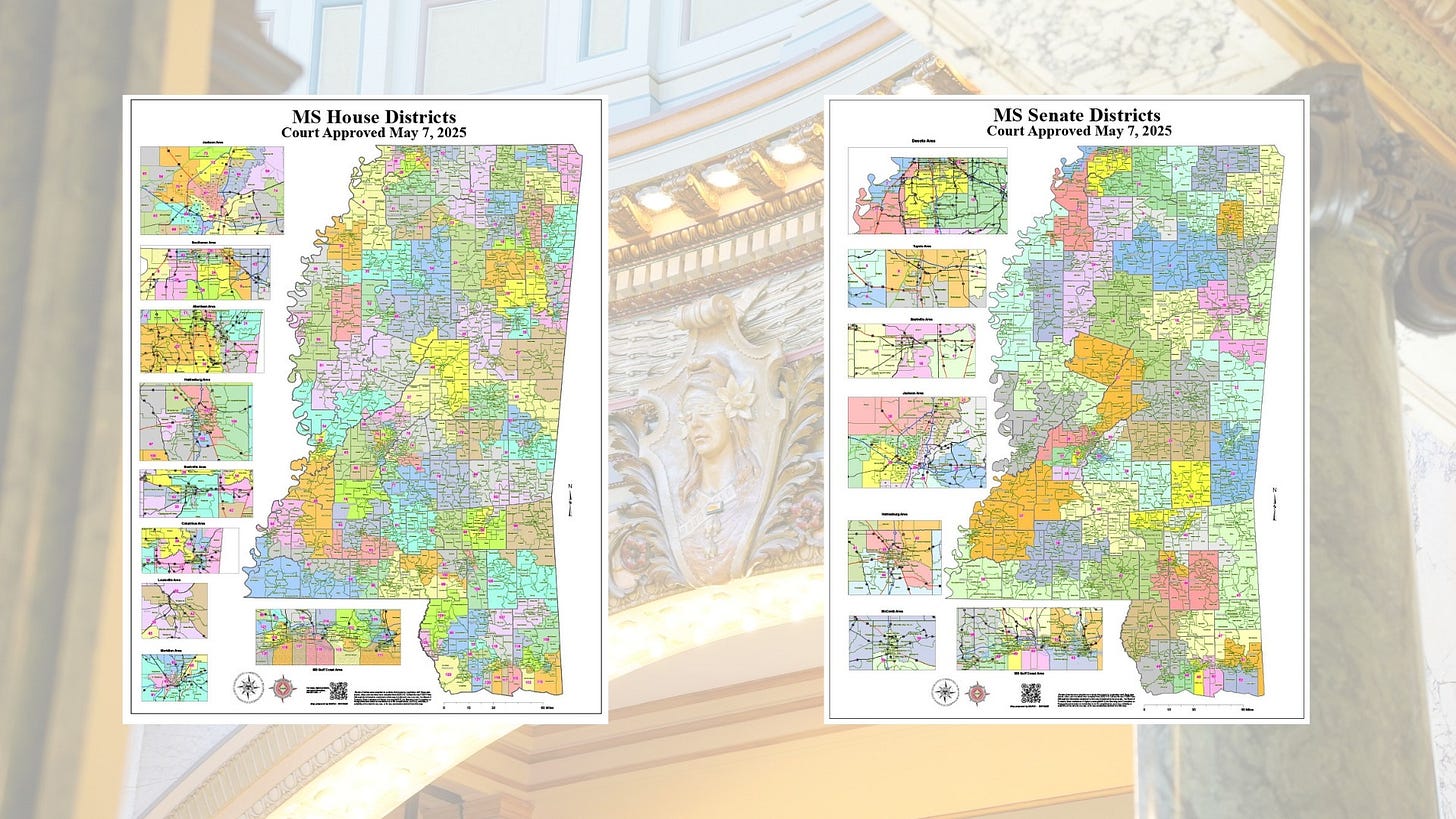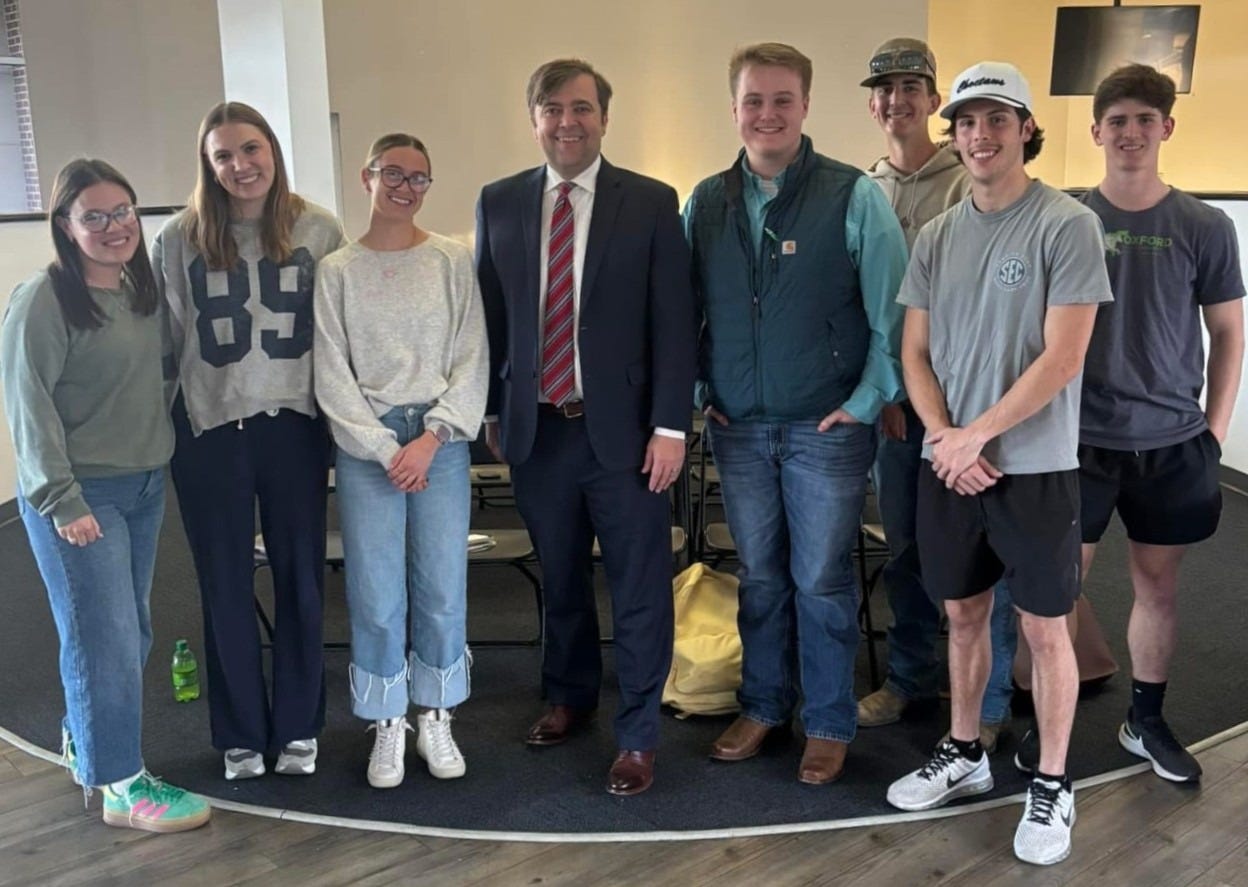Election Day in Mississippi
Students voice desire for civic engagement as ten legislative districts head to the polls.
Ed. Note: This story was updated Nov. 5 to correct statements about state legislative districts in the Clinton area. State Senate District 26 includes portions of north Clinton.
Tuesday, November 4, is election day in the United States. Several key races are happening across the country, including gubernatorial races in Virginia and New Jersey, and the highly publicized New York City mayoral race. After multiple vacancies and legal battles on redistricting, the Magnolia State will host its own general elections. Several Mississippi College students shared their views on Election Day and the importance of voting.

While no federal or state-wide offices will be on the ballot, the state of Mississippi is holding special elections to fill vacancies in the state legislature. Ten legislative districts will have new representation when polls close. For the state senate, elections are being held for districts 1, 2, 11, 19, 24, 26, 44, and 45. For the state House of Representatives, districts 22 and 26 are holding elections. In four additional districts, candidates are guaranteed a win after advancing from their primary and are now standing unopposed in the general election.
“We’re very used to paying attention to the shiny diamond called national politics because it is constantly spoon-fed to us through social media and the news,” Kye Webb, a sophomore political science and pre-law major, said. “But our hometown mayor and city government has a much more direct impact on our daily life because they provide central services like schools, public safety, roads, utilities, and they also make decisions about zoning, housing and local businesses.” Webb is the President of the Mississippi College chapter of College Republicans. The club is a student-led political organization that focuses on networking through guest speakers and campaigning opportunities.

One notable race is happening in District 26, which covers Hinds and Madison counties, as well as north Jackson. The vacancy came after would-be incumbent John Horhn left the office to lead the city of Jackson as its new mayor. Horhn previously served in the state senate for over three decades. With no incumbent present, the race is highly contested with seven candidates on the ballot: Coleman Boyd, Jermaine Cooley, Letitia Johnson, Theresa Kennedy, Kamesha Mumford, James Pittman and Jeffery Stallworth.
“[These special elections] are very important because we might have Democrats beating incumbent Republicans and Republicans beating incumbent Democrats, and that says a lot,” Webb said.
Hayden King, who served as president of MC’s former Turning Point USA chapter, said that special elections do not tend to have high voter turnout rates, especially among college students. “I’m not sure that people realize there’s an election in November, which is an off year, so to speak,” King said. “I haven’t seen many younger voters talk about it, and I don’t think many people really see it. Some of it is lack of interest and awareness of what’s going on and some of it is just not being educated about all the elections we have.” King was a two-time candidate for alderman in recent city elections.
During his time with Turning Point, King hosted a mock election for the 2024 presidential election, setting up tables and booths to get people registered to vote. This boosted political awareness and participation regardless of party affiliation. “I think all elections are important – doesn’t matter how big or small they are,” King said. He encouraged on-campus organizations to host similar events, as outcomes in special elections are often decided by a small number of voters.
When it comes to voting for a candidate, several students cited income and the economy as key issues among young people. “A lot of people don’t really know what qualified means,” Anja Marsalis, a sophomore at MC, said. “But has this person proven in the past that they can handle money?”

Decreased awareness and interest have caused some on-campus organizations to stress the importance of these elections. Webb said that the MC College Republicans are working to spread awareness via social media. “Tufts University put out a statistic saying that 77% of young conservatives got their political information from social media,” Webb said. “Overall, from our standpoint, how we can encourage people to go out and vote is just making them aware of the candidates through social media.”
Regardless of the outcome of these special elections politically, Webb, King and others see a bigger victory in building a space where students feel comfortable with political engagement. “We’re here to get people engaged in what’s going on,” Webb said. “We are here to inform people about different things that are happening across the state.”
The goal of Webb and others like him is to increase student engagement and awareness around the value of their vote. “I would encourage everyone to find the time to go out and vote,” Webb said. “One of the ways we can get involved with our political process is deciding who we want to represent us.”



